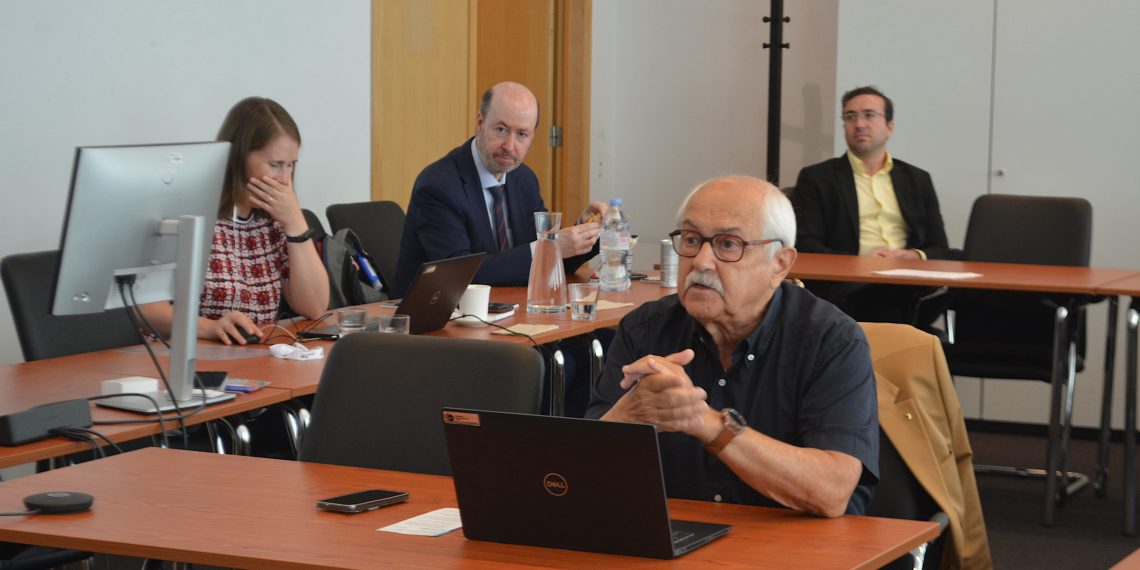The RISC2 project, which for three years aimed to build bridges in the research and training of High-Performance Computing (HPC) — considered the basis for scientific, industrial, and social advances with an impact on the quality of life of the world’s population — has officially come to an end. Among the main results achieved by this consortium composed of 16 partners — 12 from Latin America and four from Europe — the HPC Observatory and the White Paper on HPC R&I Collaboration Opportunities stand out.
In the first case, we’re talking about a platform supported by the RISC2 partners, dedicated to the analysis of social implications and research, positioning itself as a relevant source of information for European and Latin American institutions and scientists in HPC and Artificial Intelligence. It includes a Repository — a set of documents and training materials developed within the scope of the project —, a list of research and industrial institutions in the HPC area in Latin America, news related to events, and opportunities for collaboration.
According to Rui Oliveira, director of the Minho Advanced Computing Center and member of the Board of Directors at INESC TEC, this is a “tool for the future, born from the vision and active cooperation of the RISC2 project consortium”. The HPC Observatory features the “Latin American institutions that carry out research in supercomputing, their resources, and updated information on their activities. In this sense, researchers and HPC users in this region will be able to design activity plans and seek to raise the awareness of political bodies for more and better advancements”.
Regarding the White Paper on HPC R&I Collaboration Opportunities, the document reviews the main socioeconomic and environmental factors and trends that influence HPC needs and respective policy needs. It also identifies and analyses the common points in HPC R&I policies between Latin America and Europe, based on the review of policy documents from the two regions.
“The multiple applications of advanced computing are synonymous with progress for the benefit of society”, said Rui Oliveira. For example, the models produced using supercomputers may be vital to the preservation of endangered species in Latin American ecosystems – considering the risks of climate change. “Hence, both European and Latin American policymakers are aware of the importance of this matter”.
These documents are considered crucial to further advance the work carried out during RISC2, but also to all projects that preceded it. The researchers’ plans include presentations and participation in conferences as representatives of the project, in order to promote it and disseminate the results achieved.
Since 2021, through the work of stakeholders in the area, researchers from both regions have deepened their knowledge by sharing best practices. Throughout the project, the partners promoted webinars, became involved in the organisation of Summer Schools, developed scientific research activities, and met with policymakers, emphasising the need to invest in a fast-growing scientific area that is crucial to society.
“The RISC2 project has proven to be a team effort. We managed to create a living and active community on the other side of the Atlantic, to promote dialogue and cooperation, something that will not end with the formal conclusion of the project. We must keep momentum and take advantage of the importance of Latin America”, explained Fabrizio Gagliardi, project coordinator and researcher at the Barcelona Supercomputing Center.
INESC TEC, together with the University of Coimbra, is one of the Portuguese representatives, reaffirming its commitment to High Performance Computing and the recognition of Latin America as a region with strategic importance in this area.
RISC2 received funding from the Horizon 2020 research and innovation programme under agreement number 101016478.



 News, current topics, curiosities and so much more about INESC TEC and its community!
News, current topics, curiosities and so much more about INESC TEC and its community!